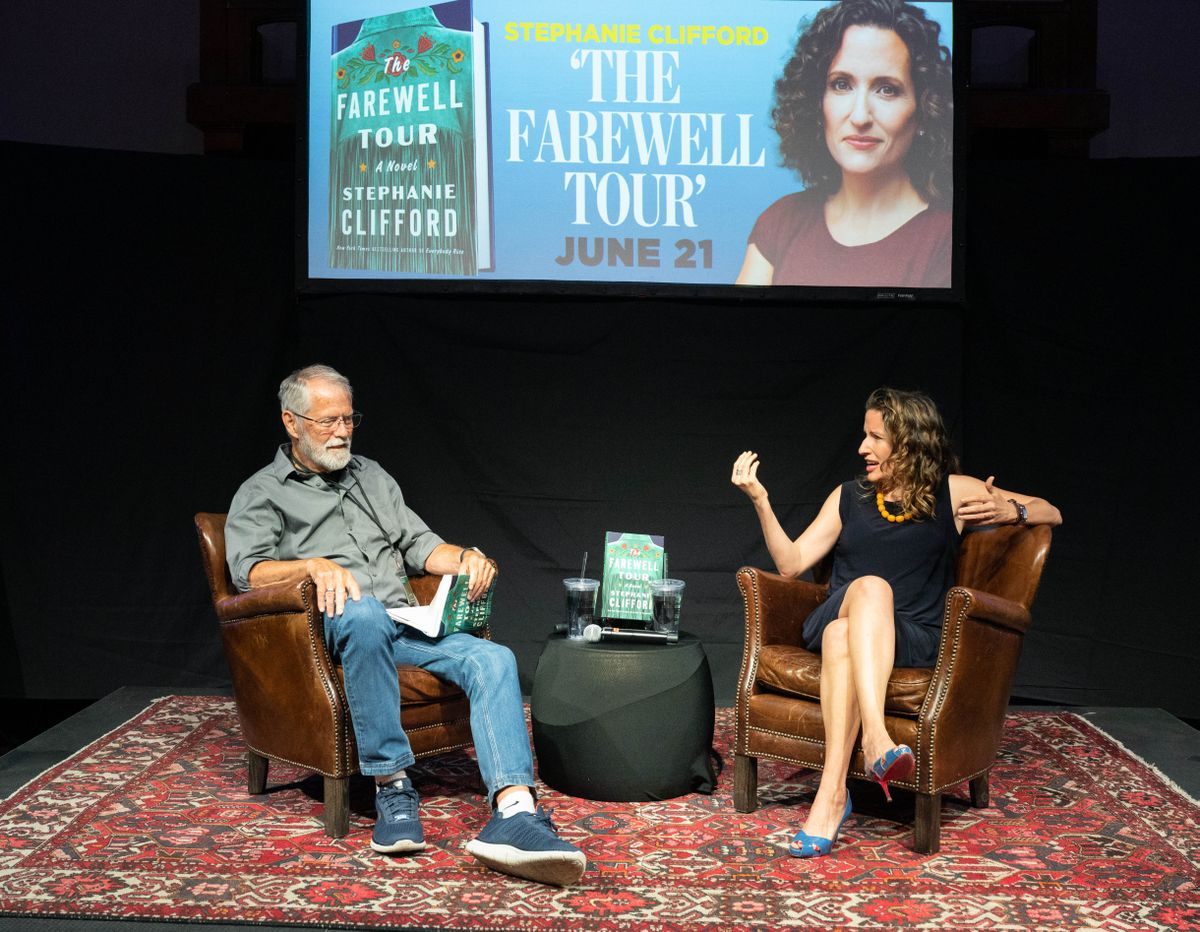Bestselling author Stephanie Clifford discusses ‘The Farewell Tour’ at Northwest Passages

Author Stephanie Clifford spoke about childhood trauma, endurance and country music in her new novel “The Farewell Tour” for a Northwest Passages book club discussion Wednesday night.
Clifford’s sophomore novel features Lillian “Lil” Waters, a past-her-prime country music star forced to accept her sunsetting career when she’s diagnosed with polyps on her vocal cords. Rather than endure surgery, Lil opts to go out with a bang, a final farewell tour that concludes in her hometown of Walla Walla. On her pilgrimage back to the northwest, Lil grapples with uncomfortable truths about her childhood, her hometown and herself.
The book travels through time, from its initial setting of Nashville in the 1980s to chapters offering snapshots of Washington life from Lil’s depression-era childhood in Walla Walla to explorations of the country music scene in 1950s Tacoma.
Clifford did research to ensure each detail of the fiction novel is historically accurate. One resource that she found particularly instrumental was a Walla Walla farmer’s diary from 1910. Clifford was able to envision a world for her characters in entries detailing his daily life. In the years leading up to the book’s release, she visited Tacoma and Walla Walla, feeling out the locations and seeing if her characters would have existed there. If it felt right, opinionated Lil would pipe up in Clifford’s subconscious.
“Lil is such an alive character, I don’t really hear her in New York, where I live, but I showed up in Spokane today and Lil was like, ‘Oh yeah, I played on that strip, I remember when that was the steam factory,’” Clifford said. “She’s just chattering away, and it’s just so fun to have her back.”
It’s an understatement to say Lil has had a hard life. She leaves her family’s failing Walla Walla farm at 10 years old, a real detail from Clifford’s grandmother’s life. She endures an abusive marriage, giving the reader a glimpse into life as a woman in the 20th century.
“I wondered what it was actually like for my grandmother, for somebody from her era where there wasn’t therapy, there weren’t ways to talk about it with your friends or ways to find support,” Clifford said. “I think it makes people feel alone, and until really the end of the book, Lil is alone.”
Clifford comments on the feminine experience through Lil’s enduring spirit. In pulling inspiration from women in her life and the lives of C-list country music star’s whose memoirs she studied, Clifford found a common thread: Their trauma, particularly in childhood, was brushed off. Abuse was often little more than a paragraph in a biography. The jarringly high number of women who’ve experienced gender-based trauma combined with a lack of conversation leads to a sort of normalization.
“I loved (my grandmother), we were incredibly close, but you could also see that there was just this wall up around her from having to be on her own so young,” Clifford said. “So I wanted to explore what that does over a lifetime.”
Clifford is a former New York Times staffer who now splits her time between writing novels and journalism, covering criminal justice. Her debut novel, “Everybody Rise,” is a New York Times bestseller.